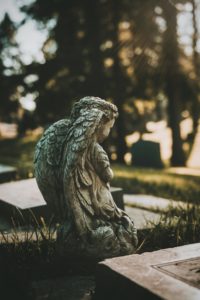An interview with a sex-trafficking survivor
Jacqueline Homan was born in Philadelphia into chronic, generational poverty. Orphaned and homeless at 13, she was trafficked by a criminal outfit until the age of 17, escaping at risk of either death or arrest. She is the author of Classism for Dimwits and Without Apology, a social and political critic, a passionate human rights advocate, a junior level Ruby on Rails software developer hoping for an employment opportunity, and a sex trafficking survivor struggling in poverty.
What are some basic realities about trafficking that you would like the anti-trafficking movement to know/understand?
Jacqueline Homan: Prostitution is a systemic oppression that does not occur in a “free-market” vacuum devoid of sexism, classism, and racism. Systems of oppression do not happen by accident in a fit of collective absent-mindedness—they are backed by and carried out with deliberate intent.
To believe that some women (and men) somehow fall into the prostitution pot-hole by accident, or “chose” it, with no external forces pushing us and keeping us there is to believe that you can have an imperialism without any imperialists, a dictatorship without dictators, and oppression without oppressors.
According to the International Labor Organization (ILO), 96 percent of the women in prostitution want to exit, but lack of access to resources and support makes it near-impossible for them to do so. Many have no families to turn to for support after exiting (I was orphaned so I literally had no family at all other than my sister, who had also been trafficked).
Many others have families who won’t take them back, or help them, or maybe even were the ones that put them into prostitution against their will in the first place.
These findings support Dr. Melissa Farley’s comprehensive study, which revealed the same thing. The sources of info from the Farley study as well as the ILO come directly from those trapped in prostitution themselves.
If prostitution was a “choice” or a “job like any other”, why aren’t middle-class and rich women kicking their way to the front of the line, shoving their poorest “sisters” out of the competition for the “opportunity” to open their legs on brothel beds for every repulsive john whose money and male privilege entitled him to a rape ticket? And why aren’t middle-class white males choosing to be prostituted, if it’s so liberating? Women are prostituted when the odds beat them.
What do you think needs to change on the societal level (how people in general view the ‘sex industry’), the direct service level (how social service and local law enforcement approach trafficked people), and the public policy level?
JH: The idea that prostituted/trafficked women “chose sex work” is the dominant narrative, and it’s a dangerous lie that has never been addressed by any social justice movement. There are even those who support legalized prostitution as a way to “destigmatize” what they call “sex work,” offering that up to poor women as a “solution” to poverty due to discrimination and gender inequality—while defending Welfare Reform and denying us any real options and equal opportunity with dignity.
Prostitution is the “Final Solution” for poor, unwanted, unvalued “surplus” women and girls whom society has discarded. Although boys and men can also be trafficked, they are not found in prostitution in any numbers like women are, even though men can also be poor and members of economically and racially disadvantaged groups.
Prostitution is not inevitable or something that “those women” enjoy. It is the result of abusive social and economic policies that disproportionately harm poor women while supporting structures of male privilege and class privilege—especially by denying poor sex trafficking survivors chances for real jobs, social acceptance, and support to rebuild our lives.
The sex trade exists because millions of ‘johns’ exercise their choice to buy poor women and children for sexual use. Usually that entails some sort of power-over thrill and falls along lines that are so cruel and sadistic that it would constitute torture under any other context. No one is forcing johns to do this. They know that the prostituted women and kids don’t enjoy it, that many are being forced against their will despite the Happy Hooker™ lie, but they don’t care. Johns deliberately buy the desperation, abuse and pain of the prostituted. They’re buying women’s oppression, poverty, and disempowerment—not their “free will” or “consent.” There is no “choice” or “consent” under duress.
Myria Vassiliadou, the EU anti-trafficking co-ordinator, told UK reporters about a Nigerian woman she met recently in London. This woman was trafficked to Britain where she served up to 20 johns a day. Vassiliadou said, “She was telling these men that she didn’t want to be there, that she was forced, and that she would be killed if she didn’t do what the traffickers said. She told the men and the men would say, ‘I don’t care. I paid for this.’”
Now that guy is your typical john.
Combined with the overt exploitation of the johns and the pimps is the indifference of society. Women like me get no material help to rebuild our stolen lives. We don’t get chances for jobs. We’re not welcome anywhere. So when traffickers and pimps tell their victims that “once a whore, always a whore” and that society has no other place for us except the gutter and an early grave, they’re telling the truth.
Even many “allies” and “helpers” in the anti-trafficking movement treat and view us as “fallen women” and as “damaged goods.” I know because I’ve lived it, and I am still living it. A dear friend and fellow abolitionist, Ed Drain, was prevented from speaking about the plight of Sara Kruzan at an anti-trafficking NGOs annual fundraising walk a couple years ago, because Kruzan’s case was “too controversial.” The only thing that was controversial was that this society failed her—first by failing to protect her when she was raped at 11 and groomed by a pimp who forced her into prostitution at 13 (and whom she killed when she was 16), and second by charging her as an adult and sentencing her to life imprisonment. She finally won her bid for parole, 19 years later, and was released last year under the condition she waive her right to sue the state of California for the injustice.
When I was trafficked at age 13, it was before the AIDS epidemic struck. But today, the HIV/AIDS epidemic is claiming the lives of a significant number of sex trafficking victims. I would say that Sara Kruzan killed not only in self-defense but also in defense of all the other women and girls that her pimp would have destroyed and killed —either at the hands of violent johns who murder prostituted women and girls with impunity, or due to being infected with HIV. Sex trafficking victims/survivors have the lowest life expectancy rates of the population. If a fatal and incurable STD does not infect and kill you, life-threatening poverty from permanent social exclusion and total marginalization will.
What has your experience of being trafficked cost you?
JH: It has been 30 years since I escaped my traffickers at risk of either death or arrest. And due to my prostitution past, on top of a lifetime of marginalization and total disprivilege, I have yet to get a chance for a job that I am physically able to do (I have untreated severe urinary incontinence from the sexual trauma, back and hip problems and I can barely walk now due to injuries I suffered when I was trafficked and I have no access to medical care). Permanent social and economic exclusion is the rule, not the exception, for most survivors of sex trafficking.
After going into debt to pay for remedial classes at a community college to make up for the education I lost between the ages 13-17 when I was trafficked, and then going on to university, I finally graduated with a Bachelors degree in math at age 34. But my degree failed to open any doors for me due visible conditions of poverty plus having a prostitution arrest record and a lack of employment and professional references. I had to spend years going through other people’s trash for food and scrap metal to get money just to barely survive. I had no access to medical or dental care. Try getting a job even at McDonald’s or Wal-Mart when you’re a woman who has to face the public with visibly decayed and broken teeth due to a lifetime of extreme poverty. Try getting a job when you’ve got little work history to put on a resume and no references. Who do you list? Your pimp? The johns who degraded you, terrorized you, abused you, and crushed your humanity?
I only recently got an opportunity to learn a new skill in the one and only field (software development) that won’t exclude women despite a prostitution record, but even breaking into that field is hard because the obstacles are tremendous: poverty, lack of resources, and the fact that all the “empowering women initiatives” for getting more women into high tech are aimed solely at women who already have middle-class privilege. You need money to afford a computer, programing books, training not covered under Title IV funding, including non-degree online classes and developer boot camps. Plus you need money for professional clothes, transportation, and fees for workshops and conferences (and lodging). Then you are competing with those who have experience and plenty of references from a middle class network of family and friends. Poor, marginalized exited women don’t stand a chance—even after getting some skills training. And telling us to just “look to God to provide” while turning us away empty-handed and hungry doesn’t help.
If people really want to fight trafficking effectively, then we need systemic changes and restorative justice. We do not need paternalistic, miserly, inadequate charity. We do not need to be infantilized. We do not need to be used and exploited for our stories by anti-trafficking organizations that get the lion’s share of federal dollars and public donations on our blood, pain, and tears. We do not need well-heeled anti-trafficking groups claiming to seek to empower us while they refuse to offer us paid speaker slots or refuse to hire those of us who had been the victims of sex trafficking for paid positions in their organizations and networks.
The charity system is paternalistic, broken, and does not work. Nobody ever talks about all the desperately poor sexually exploited women whom charities refuse to help, or make that limited help conditional upon converting to Christianity and adhering to Christian “abstinence” pledges. There are some real systemic problems here.
The public sees these well-heeled charities’ PR campaigns and they think, “Oh, there’s all this help out there for poor marginalized women,” when in reality there’s not. Charities do not state publicly that the poorest of the poor who have zero income (you can’t prove zero income) are turned away and not helped because of inability to comply with charities’ requirements that you have proof of income, or testifying against your trafficker if he’s already dead. How do you prove or comply with what you don’t have? Nobody talks about all the women in my situation who are turned away and not helped with medical and dental care. And charities do not address the need for long-term economic support for the jobless poor.
Just like nobody talks about all the desperately poor trafficking victims who, after being rescued and completing a program at a safehouse (many whose directors and staff re-traumatize the women), are economically forced back into prostitution because this society denies options to them. Very few of us are able to remain exited, and those of us who manage do so at a very steep cost in terms of life-long abject poverty with no hope and no end in sight.
Even the well-paid blue-collar jobs (i.e. electrician, plumber, carpenter, heavy equipment/crane operator, etc.) that men with felony convictions can get, are denied to women due to discrimination. So, poor trafficked women have less legal rights and economic opportunity than “normal” women—and men who are convicted felons with histories of violence. Where’s the justice in that?
I don’t know how many rescued trafficking victims return to prostitution, but given how high the deck is stacked against women like us, it’s fair to say that the rate is pretty high.
Some trafficking victims self-medicate with drugs in order to get through the sheer torture of their daily lives in the sexual slavery occurring in the backyard of the same society that discarded them into the institution of prostitution in the first place. Many are also put on drugs by their pimps, and they have arrest records for drug offenses as well as prostitution. This is then used to bar them from getting jobs and what little support that remains of our eviscerated social safety net as well as educational and job opportunities.
We need real financial and material support for poor, marginalized women, whether they escaped from prostitution 30 minutes or 30 years ago. We do not need lip service and lectures on bootstraps after this society made sure we couldn’t even own a pair of boots. Poor exited women must have income support so we’re able to live with a little bit of human dignity while we struggle to rebuild our shattered lives. That would provide some justice and reparation on the part of society. I feel that this is only fair since it was society that discarded us into prostitution in the first place and then left us no way out. The least that can be done for us is some real unconditional financial help to put us on our feet. Without johns using their privileges to ensure access to a guaranteed pool of poor, vulnerable throwaway women, pimps and traffickers would go out of business.
When people ask me how much reparations I feel a sex trafficking survivor who has suffered a lifetime of marginalization and chronic abject jobless poverty deserves, I ask them: “What is your life worth to you?”
What would all the things you got to have and experience that you take for granted as “normal” be worth to you? What are the “normal” teenage experiences of socialization and an education, your stability and basic emotional and physical security worth to you? What would an entire lifetime of being denied employment and the ability to participate in society, not being accepted, and instead receiving nothing but contempt mean to you? What do you feel is fair compensation for being unfairly deprived of all the things that non-prostituted, middle class people got to have or experience that they take for granted as “normal?” What is just compensation for being condemned to die from life-threatening poverty without due process after escaping the criminal abuse done to you?
I was robbed of my whole life, first by the men who trafficked me because I was orphaned, homeless, female, and poor; and then by society through punitive laws and discriminatory social and economic policies. If this happened to your sister, your mother, your daughter, or even you, what would an entire lifetime of opportunities denied be worth? Why is mine worth any less?
Remember: I did not discard myself at age 13. I did not traffic myself. I did not enslave myself. I did not rape, beat and torture myself. I did not choose that life. I did not deprive myself of an education. I did not deny myself a chance for a job after struggling to bridge my education and skills gap. I did not marginalize myself. This was done to me by others who did have the choice to not buy prostituted women and girls, and the larger society that prefers to shield men who buy rape tickets than uphold poor women’s basic human rights. My life was stolen from me before I was even old enough to apply for a driver’s permit, or have that first kiss with a boy my own age, or have my first dance under this society’s watch.
Related reading:
The Big Business of “Fighting” Sex Trafficking: The Failure of Faith-Based Initiatives by Jacqueline Homan
“Following Jesus Back to the Streets: An interview with a former pimp“


